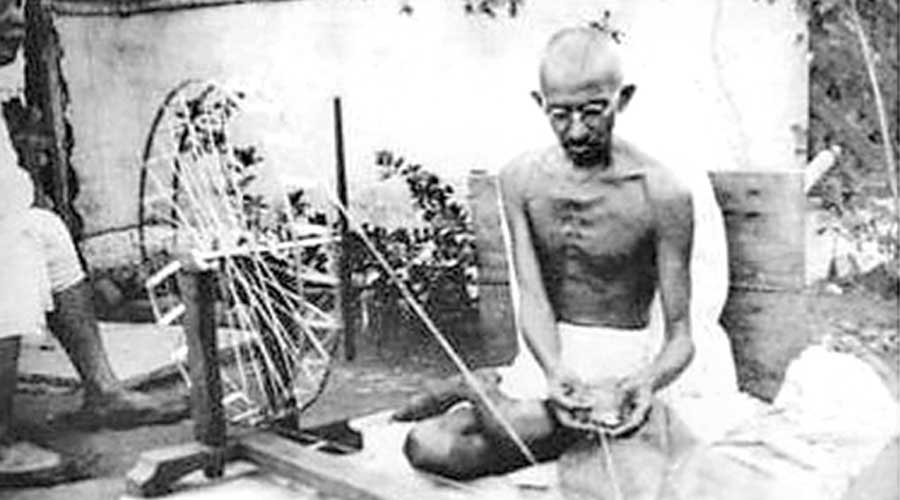Diplomacy, it is often assumed, is the art of communicating through winks and nudges. Yet there are times when a message can be passed on without subterfuge. Consider Joe Biden’s recent remark on the relevance of M.K. Gandhi whose 152nd birth anniversary is being celebrated today. Speaking with the Indian prime minister beside him, the president of the United States of America chose to remind the world — and India — of the critical importance of Gandhian values in today’s world.
Mr Biden’s reminder assumes significance in the context of New India’s problematic relationship with, arguably, its tallest leader. Usually, the Mahatma is invoked in the land of his birth through pageantry. Gandhi Jayanti — a public holiday — is marked with fervour each year; countless welfare programmes have been christened after this great man by successive political dispensations; texts and curriculum continue to pay their customary tributes to him. But India, new and old, has been guilty of trapping Gandhi within the narrow confines of reverence. The consequences of such veneration — even though Gandhi is remembered more in breach than in honour of the Gandhian spirit — have been the most explicit and worrying in the last few years. The distance between New India and the Father of the Nation — the crux of Mr Biden’s message? — could not have been starker than it is today. India’s pluralist fabric is in tatters with the republic’s seemingly enthusiastic embrace of a majoritarian sensibility. That a parliamentarian chose to glorify Gandhi’s murderer and, by that logic, the divisive ideology that Gandhi fought against and, ultimately, died for is indicative of the anti-Gandhian zeitgeist. Gandhi’s comprehension of caste had many critics: B.R. Ambedkar, another founding father, was among them. Yet, none can dispute the Mahatma’s antipathy towards institutionalized discrimination and violence perpetrated against social groups that are vulnerable, economically and socially. A little over seven decades after Gandhi’s martyrdom, a crime is committed against a Dalit every 10 minutes in this country. The Indian media’s peddling of false narratives, with social media as their cohort, would have also drawn a chuckle from that seeker of truth.
Men and empires have ignored, laughed at and fought Gandhi but the man has, inevitably, emerged triumphant. He is likely to win the battle against New India’s amnesia too. This is because Gandhi’s endurance transcends his roles of politician — he was the real Chanakya — philosopher, social activist, champion of morality and so on. In its ceaseless campaigns against violence, inequality, ostentatiousness, material excess, ecological depredations, unimaginative mechanization, to cite a few among the long list of human follies, the Gandhian voice is, in essence, the voice of conscience itself. The human race, in spite of its reprehensible efforts across the ages, has not managed to silence it yet.











